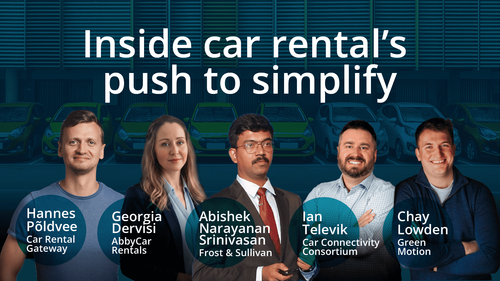For decades, owning a vehicle was seen as a symbol of independence, financial success, and social status. Today, however, shifting consumer priorities and technological innovations are transforming the way people view mobility. The concept of “access over ownership” is gaining momentum, particularly in the car rental and subscription markets, where flexibility and convenience often outweigh the burden of long-term ownership.
Shifting Consumer Preferences in Mobility
Urbanization, rising vehicle costs, and lifestyle changes are among the leading factors driving the shift from ownership to access. In many major cities, parking is limited, maintenance is costly , and environmental concerns are pushing people to reconsider whether owning a car is worth it. Instead, consumers are opting for services that provide them with cars when they need them, without the financial or logistical burdens of ownership.
Why Access Appeals to Modern Drivers
One of the strongest arguments for access-based models like rentals or car subscriptions is financial flexibility . Instead of tying up money in a depreciating asset, consumers can pay only for the mobility they need. This often includes insurance, maintenance, and other expenses, removing the unpredictability that comes with car ownership.
Convenience is another major benefit. With on-demand platforms, drivers can rent or subscribe to vehicles instantly, whether they need a small car for city driving, an SUV for a weekend trip, or even a luxury vehicle for special occasions. In addition, access-based models align with sustainability goals by reducing the total number of vehicles on the road and encouraging more efficient use of transportation resources.
Trust and Transparency in Rental Models
For the access model to thrive, consumers need confidence that the cars they rent are safe, reliable, and well-maintained. Trust is built not only through strong rental company reputations but also through transparency in vehicle condition. Maintenance records, safety inspections, and even a car history report can help assure renters that the vehicle they’re driving hasn’t been in major accidents or suffered from hidden mechanical issues. This kind of transparency helps bridge the gap between the uncertainty of short-term rentals and the peace of mind that traditionally comes with ownership.
Technology Driving the Rental Revolution
Technology is the backbone of the access-over-ownership model. Mobile apps make it possible to book, unlock, and pay for cars without ever visiting a rental counter. Connected cars equipped with telematics allow rental companies to monitor vehicle health, track mileage, and optimize fleet performance in real time.
Data is also playing a central role. From predictive maintenance to personalized rental recommendations, technology is helping car rental services deliver smoother, more efficient experiences for both companies and customers.
Challenges of the Access Model
Despite its advantages, access over ownership is not without challenges. Insurance and liability questions can be complex, especially when vehicles are used by multiple drivers within short timeframes. Rental fleets also face accelerated wear and tear, which raises maintenance costs and impacts resale value.
Affordability is another consideration. While renting can be cost-effective for occasional drivers, heavy users may find that long-term costs add up quickly. Providers need to strike a balance between competitive pricing and maintaining the quality of their fleets.
The Future of Car Rental and Mobility
The access model is rapidly evolving. Subscription-based car services, where users pay a flat monthly fee to switch between different types of vehicles , are growing in popularity. At the same time, integration with public transportation and micro-mobility solutions like bikes and scooters is creating seamless, multi-modal mobility ecosystems.
Electric and autonomous vehicles will likely accelerate the access trend. Fleets of self-driving cars could make it even easier and more cost-effective for consumers to use cars on demand without ever needing to own one.
The concept of access over ownership in car rental reflects a broader cultural and economic shift. As consumers prioritize flexibility, convenience, and sustainability, rental and subscription models are poised to become the new normal. However, for this transformation to succeed, trust and transparency must remain at the core, ensuring that every rented vehicle is safe, reliable, and backed by the kind of information that gives consumers peace of mind. By combining technology, innovation, and customer-first practices, the car rental industry is well-positioned to drive the future of mobility.






